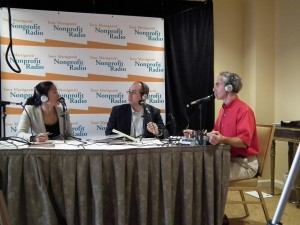
We started with the caveat that the game changes on election day, November 2nd. I refrained from asking for their predictions.
Congress has been “slow and negligent” on tax issues, Perry concludes. The estate tax, Bush tax cuts and the tax extenders, including the charitable IRA rollover, have all been delayed or ignored. Financial and healthcare overhaul pushed these to the back burner.
Emily shared concerns about the new Internal Revenue Code provision troubling healthcare institutions, section 501(r). It’s enormously intrusive, requiring subsidized care at minimum levels, for instance.
They both shared opinions on what it will mean when, under the most likely scenario, Orrin Hatch replaces Senator Grassley on the Senate Finance committee–an important tax-writing committee. Grassley has been an unprecedented maverick around nonprofit oversight and the two expect his successor to the ranking member spot to be quite interested in charity regulation, but not as outspoken as Grassley.
More interviews today and a flight home this afternoon.
